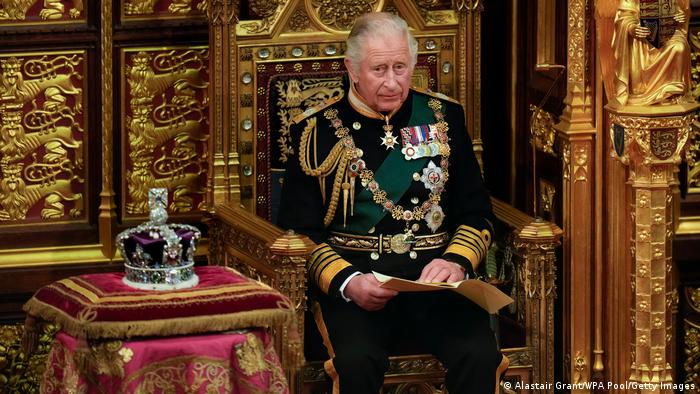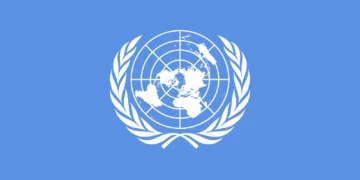The revered royal institution of the House of Windsor, United Kingdom, is today experiencing a landmark event after a 70-year reign of the beloved Queen Elizabeth II. As Prince Charles, the eldest son of the deceased monarch is being crowned King Charles III, Sovereign of the Kingdom, 14 other Realms and Defender of the Faith. Obviously, the splendour and grandeur of Royalty in all its magnificence, is on display.
As head of the Commonwealth of countries that had and are still having political ties with the United Kingdom, the event today will attract leaders from far flung countries and watched on television by millions more.
King Charles is ascending the throne at an opportune time in the history of the Kingdom that is becoming increasingly multi-racial and multi-religious. Yet, these circumstances will, in no way, diminish the power and prestige of this royal family that has seen the best of time in the history of the world and a dwindling of influence and fortune as the territories shrink in response to the self-determination of countries that once looked up to the British Crown for guidance, if not leadership.
It must be understood that the British Sovereign is essentially ceremonial. As head of the Commonwealth, he reigns and do not rule. Still, his place in the affairs of the Kingdom is well established. No Prime Minister assumes office without the say so of the Monarch.
The coronation of the monarch of the United Kingdom is an initiation rite presided over by the Archbishop of Canterbury in which the sovereign is formally invested with regalia and crowned at Westminster Abbey. It is a symbolic formality and does not signify the official beginning of the monarch’s reign; de jure and de factor, his reign commenced from the moment of the official announcement of his mother’s death, maintaining the legal continuity of the monarchy. In other words, at the death of a reigning monarch the next in line, in this case, Prince Charles, took over automatically.
The ceremony usually takes place several months after the death of the previous monarch, as it is considered a joyous occasion that would be inappropriate while mourning continues. This interval also gives the planners enough time to complete the elaborate arrangements required.
As heir apparent, Charles undertook official duties and engagements on behalf of his mother. He performed these duties during the more than five decades of his reign as Prince of Wales. It is believed that he is ascending the throne today well prepared for the task ahead in a world that is experiencing socio-cultural and political change in dynamics.
While waiting to ascend to the throne, he established the Prince’s Trust in 1976 and sponsors The Prince’s Charities. These activities and his being the patron, president, or member of over 800 other charities and organisations, has exposed him immensely to the peculiarities of leadership in a complex system of local and international affairs in which there is an intricate, yet unyielding, commitment to the differentiation between respect for a ceremonial monarch and the dominance of a democratically elected leader.
As an environmentalist and as Prince Charles, he supported organic farming and action to prevent climate change during his time as the manager of the Duchy of Cornwall estates, earning him awards and recognition as well as criticism over his opposition towards genetically modified food. He also supports homeopathy and other alternative medicines. He has authored or co-authored 17 books.
Charles III (Charles Philip Arthur George) was born on November 14, 1948 in Buckingham Palace during the reign of his maternal grandfather, George VI, and was three years old when his mother, Elizabeth II, acceded to the throne in 1952, making him the heir apparent.
He was created Prince of Wales in 1958 and his investiture was held in 1969. He was educated at Cheam and Gordonstoun schools and later spent six months at the Timbertop campus of Geelong Grammar School in Victoria, Australia. Gordonstoun, noted for its especially rigorous curriculum, was praised by the King later in life as having taught him “a great deal about myself and my own abilities and disabilities. It taught me to accept challenges and take the initiative.”
After earning a Bachelor of Arts degree from the University of Cambridge, Charles served in the Royal Air Force and Navy for five years, from 1971 to 1976. In 1981, he married Lady Diana Spencer, with whom he has two sons: William, Prince of Wales, and Prince Harry, Duke of Sussex. The couple divorced in 1996, after they had each engaged in well-publicised extramarital affairs. Diana died as a result of injuries sustained in a car crash the following year. In 2005, Charles married his long-term partner, Camilla Parker Bowles who from today will be known officially as the Queen Consort.
It is significant to point out that The United Kingdom is one of the Commonwealth Realms, which are sovereign states that share the same person as monarch and the same order of succession. In 2011, the prime ministers of the then-16 Realms agreed unanimously to amend the rules of succession. Male-preference primogeniture was abandoned, meaning that males born after October, 2011 no longer precede females in line, and the ban on marriages to Catholics was lifted. The monarch still needs to be in communion with the Church of England. After the necessary legislation had been enacted in accordance with each realm’s constitution, the changes took effect on 26 March 2015. King Charles III, long may you reign.





